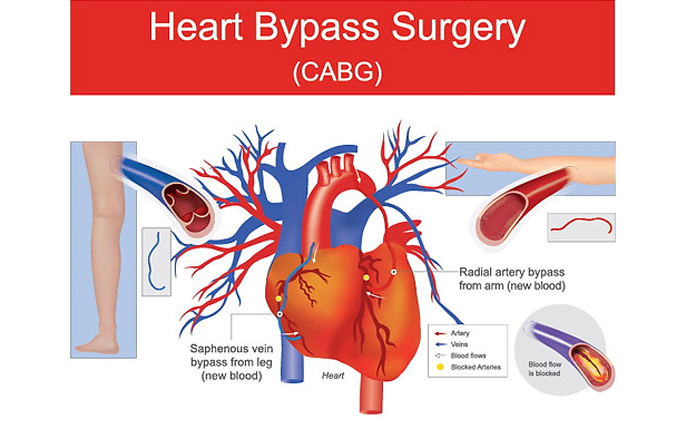Heart Bypass Surgery
A procedure that is used to improve blood circulation is known as Heart bypass surgery or coronary artery bypass graft (CABG) surgery. To bypass the damaged arteries, blood vessels are taken from another area of the body. It is only indicated either when there is an injury to the artery or the artery is completely clogged to prevent heart failure.
Types of Heart Bypass Surgery
Indications for Heart Bypass Surgery
Risks of Heart Bypass Surgery
What can be done instead of Heart Bypass Surgery?
Balloon Angioplasty
A tube is threaded through the blocked artery and Afterward, a small balloon is inflated to make the artery wide. Then, a stent is placed and the balloon and tube are removed. The effectiveness of this procedure is less than bypass surgery but it involves less risk.
Enhanced External Counterpulsation (EECP)
In this procedure, blood vessels are compressed in the lower limbs. Which significantly increases blood flow to the heart. Within a certain period, some additional branches of vessels are developed to act as a bypass.
Medications
- Beta-blockers to ease angina.
- For prevention of plaque deposition, cholesterol-reducing drugs.
- Low-dose aspirin to reduce the chances of a heart attack.
The Procedure of Heart Bypass Surgery
Medications to take after Heart Bypass Surgery
Long-term effects of Bypass Surgery
Some Facts about Bypass Surgery
| Number of days taken for initial investigations | 1 |
| Number of days in ICU | 3 |
| Number of days in Room | 4 |
| Follow up days | 7 |
| Total days required to stay overseas for treatment | 15 |
Role of Parishay Healthcare in Planning Bypass Surgery!
After you contact us, a relationship manager is allocated to you who arranges a teleconsultation with an excellent healthcare provider according to your need. After your consent, we move forward with your untroubled travel arrangements, treatment plan, and follow-up care.
For more information visit our website www.parishayafrica.com


